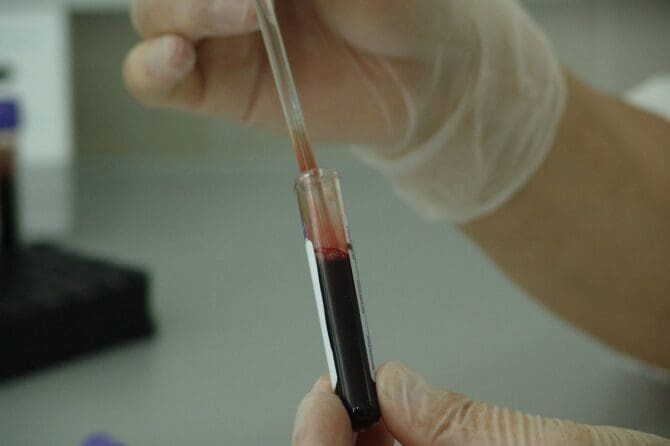The Ultimate Guide to Pregnancy Skincare Ingredients
Pregnancy is a beautiful journey filled with excitement and anticipation. As an expectant mother, taking care of your skin becomes even more important. However, with so many skincare products available in the market, it can be overwhelming to choose the right ones that are safe for you and your baby. That’s where this comprehensive guide comes in.
In this ultimate guide, we will explore skincare ingredients that are safe to use during pregnancy and their benefits for expectant mothers. We understand the importance of maintaining a healthy and radiant complexion while ensuring the safety of both you and your baby. So, let’s dive in and discover the key ingredients that will help you achieve just that.
Gentle Cleansers
Gentle cleansers are a crucial part of a skincare routine during pregnancy. They are mild cleansers that effectively remove dirt and impurities from the skin without stripping away its natural oils. This ensures a gentle and safe cleansing routine that is essential for expectant mothers.
During pregnancy, hormonal changes can lead to an increase in oil production and sensitivity of the skin. Using harsh cleansers can disrupt the skin’s natural balance and cause dryness or irritation. Gentle cleansers, on the other hand, are formulated to be gentle on the skin while still effectively removing impurities.
These cleansers are typically pH-balanced and free from harsh ingredients such as sulfates and fragrances. They cleanse the skin without causing any irritation or dryness, making them ideal for pregnant women with sensitive skin.
Some gentle cleansers also contain soothing ingredients like chamomile or aloe vera, which can help calm any inflammation or redness on the skin. These ingredients provide additional benefits and promote a healthy complexion during pregnancy.
When choosing a gentle cleanser, it is important to read the labels and look for ingredients that are safe for use during pregnancy. Avoid cleansers that contain retinoids, salicylic acid, or any other potentially harmful ingredients.
In summary, gentle cleansers are mild yet effective in removing dirt and impurities from the skin without stripping away its natural oils. They provide a gentle and safe cleansing routine during pregnancy, ensuring that the skin remains clean and healthy without any irritation or dryness.
Moisturizing Ingredients
During pregnancy, maintaining the skin’s moisture levels is essential to prevent dryness and promote a healthy skin barrier. This can be achieved by incorporating moisturizing ingredients into your skincare routine. Two key ingredients that are highly effective in hydrating the skin are hyaluronic acid and glycerin.
Hyaluronic acid is a powerful humectant that has the ability to hold up to 1000 times its weight in water. This means that it can deeply hydrate the skin, leaving it plump and supple. It also helps to improve the skin’s elasticity, which is especially beneficial during pregnancy when the skin is prone to stretching.
Glycerin, on the other hand, is a natural moisturizer that helps to attract and retain moisture in the skin. It forms a protective barrier on the skin’s surface, preventing water loss and keeping the skin hydrated throughout the day. Glycerin also has soothing properties, which can help to alleviate any discomfort or itchiness that may arise during pregnancy.
When choosing skincare products during pregnancy, look for those that contain hyaluronic acid and glycerin as key ingredients. These moisturizing ingredients will not only help to prevent dryness but also promote a healthy skin barrier, keeping your skin looking and feeling its best throughout your pregnancy journey.
Antioxidants
During pregnancy, it is important to protect your skin from free radicals and reduce inflammation for a healthy and radiant complexion. Antioxidants play a crucial role in achieving this. Two powerful antioxidants that are safe to use during pregnancy are vitamin C and E.
Vitamin C is known for its brightening and anti-aging properties. It helps to reduce hyperpigmentation and promotes collagen production, keeping the skin firm and youthful. Vitamin C also helps to neutralize free radicals, which can cause damage to the skin cells and lead to premature aging.
Vitamin E is another essential antioxidant that helps to protect the skin from oxidative stress. It moisturizes and nourishes the skin, preventing dryness and promoting a healthy skin barrier. Vitamin E also has anti-inflammatory properties, which can help to soothe any redness or irritation on the skin.
By incorporating skincare products with antioxidants like vitamin C and E into your routine, you can effectively combat free radicals, reduce inflammation, and achieve a radiant complexion during pregnancy.
Natural Oils
During pregnancy, it’s important to keep the skin hydrated and supple to prevent dryness and maintain its elasticity. Natural oils, such as jojoba oil and argan oil, are excellent choices for nourishing the skin. These oils are rich in essential fatty acids and vitamins, which help to replenish and moisturize the skin.
Jojoba oil is known for its similarity to the skin’s natural sebum, making it easily absorbed and non-greasy. It provides deep hydration, leaving the skin soft and smooth. Argan oil, on the other hand, is packed with antioxidants and vitamin E, which help to protect the skin from damage caused by free radicals and promote a healthy complexion.
Using natural oils during pregnancy can help alleviate dryness and itchiness, which are common concerns for expectant mothers. These oils also have soothing properties that can help reduce the appearance of stretch marks, another common skin issue during pregnancy.
When incorporating natural oils into your skincare routine, it’s best to use them after cleansing and toning. Simply apply a few drops onto your fingertips and gently massage them onto your face and body. You can also mix a few drops with your moisturizer for added hydration.
Remember to always choose high-quality, pure oils and patch test them before using them on larger areas of your skin. If you have any concerns or questions, it’s always a good idea to consult with your healthcare professional.
Shea Butter
A rich and moisturizing butter that soothes and nourishes the skin, helping to alleviate itchiness and stretch marks commonly experienced during pregnancy.
Shea butter is a natural ingredient derived from the nuts of the shea tree. It has been used for centuries for its moisturizing and healing properties. During pregnancy, many women experience dryness and itchiness due to hormonal changes. Shea butter is an excellent solution for these concerns.
One of the main benefits of shea butter is its ability to deeply hydrate the skin. It contains high levels of fatty acids and vitamins, which provide nourishment and lock in moisture. This helps to alleviate dryness and prevent the skin from becoming tight and uncomfortable.
In addition to its moisturizing properties, shea butter is also known for its ability to soothe irritated and itchy skin. The natural anti-inflammatory compounds found in shea butter can help to calm redness and reduce itchiness, providing relief for pregnant women.
Stretch marks are a common concern during pregnancy, as the skin stretches to accommodate the growing baby. Shea butter can help to improve the elasticity of the skin, making it more resilient and less prone to developing stretch marks. Regular application of shea butter can also help to fade existing stretch marks, making them less visible over time.
When using shea butter during pregnancy, it is important to choose a high-quality, unrefined product. This ensures that the butter retains its natural properties and is free from any potentially harmful additives. It is also advisable to perform a patch test before using shea butter on a larger area of the body, as some individuals may have a sensitivity or allergy to this ingredient.
In conclusion, shea butter is a highly beneficial skincare ingredient for pregnant women. Its rich and moisturizing properties make it an excellent choice for alleviating dryness, itchiness, and stretch marks. By incorporating shea butter into their skincare routine, expectant mothers can enjoy nourished and healthy-looking skin throughout their pregnancy journey.
Exfoliating Ingredients
Gentle exfoliation is an essential step in any skincare routine, and pregnant women can also benefit from incorporating exfoliating ingredients into their regimen. Exfoliants like fruit enzymes and lactic acid offer a safe and effective way to remove dead skin cells, unclog pores, and promote cell turnover, resulting in a brighter and smoother complexion.
Fruit enzymes, derived from fruits like papaya and pineapple, gently dissolve the bonds between dead skin cells, allowing them to be easily sloughed off. This natural exfoliation process reveals fresh, healthy skin underneath and helps to improve the overall texture and tone of the skin.
Lactic acid, a type of alpha hydroxy acid (AHA), is another excellent exfoliating ingredient for pregnant women. It works by gently dissolving the glue-like substance that holds dead skin cells together, effectively removing them from the surface of the skin. Lactic acid also has the added benefit of promoting hydration and stimulating collagen production, resulting in a smoother and more youthful complexion.
When using exfoliating ingredients during pregnancy, it’s important to choose products that are specifically formulated for sensitive skin and avoid harsh physical exfoliants like scrubs or brushes. These can cause irritation and damage to the skin, especially during this sensitive time. Instead, opt for gentle exfoliating products that are designed to be safe for use during pregnancy.
It’s also crucial to follow the instructions provided by the product and not over-exfoliate. Over-exfoliation can lead to dryness, redness, and sensitivity, which is something expectant mothers want to avoid. Start with a lower concentration of exfoliating ingredients and gradually increase as tolerated by your skin.
In summary, incorporating gentle exfoliating ingredients like fruit enzymes and lactic acid into your skincare routine during pregnancy can help remove dead skin cells, promote cell turnover, and reveal a brighter and smoother complexion. Remember to choose products specifically formulated for sensitive skin and follow the instructions provided to ensure a safe and effective exfoliation experience.
Sunscreen
Sunscreen is an essential part of any skincare routine, especially during pregnancy. It is crucial to protect the skin from the harmful effects of UV rays, which can lead to sun damage and pigmentation issues. Using a broad-spectrum sunscreen with SPF 30 or higher is highly recommended for expectant mothers.
UV rays can penetrate the skin and cause damage, leading to premature aging, dark spots, and an increased risk of skin cancer. During pregnancy, hormonal changes can make the skin more sensitive to the sun, making it even more important to use sunscreen regularly.
A broad-spectrum sunscreen provides protection against both UVA and UVB rays. UVA rays can penetrate deep into the skin, causing long-term damage, while UVB rays primarily affect the outer layers of the skin, leading to sunburn. By using a broad-spectrum sunscreen, you can shield your skin from both types of rays.
When choosing a sunscreen, look for a minimum SPF of 30. This indicates the level of protection against UVB rays. Higher SPFs provide increased protection, but it’s important to note that no sunscreen can provide 100% protection. It’s also essential to reapply sunscreen every two hours or more frequently if you’re sweating or swimming.
During pregnancy, hormonal changes can also lead to an increase in pigmentation issues such as melasma, also known as the “mask of pregnancy.” Melasma causes dark patches to appear on the face, especially on the cheeks, forehead, and upper lip. Using sunscreen diligently can help prevent the worsening of existing pigmentation issues and reduce the risk of developing new ones.
Remember, sunscreen should be applied as the last step in your skincare routine, after moisturizer and before makeup. Apply it generously to all exposed areas of the skin, including the face, neck, and hands. Don’t forget about often overlooked areas like the ears, back of the neck, and tops of the feet.
By incorporating a broad-spectrum sunscreen with SPF 30 or higher into your daily skincare routine, you can protect your skin from the damaging effects of UV rays during pregnancy. This simple step can help prevent sun damage, pigmentation issues, and keep your skin healthy and radiant throughout your pregnancy journey.
Mineral Sunscreens
Mineral Sunscreens:
During pregnancy, it is crucial to protect your skin from the harmful effects of the sun. However, many conventional sunscreens contain chemicals that may not be safe for expectant mothers. That’s where mineral sunscreens come in.
Mineral sunscreens are a safe and effective alternative that use mineral filters like zinc oxide and titanium dioxide. These minerals create a physical barrier on the skin, reflecting and scattering the sun’s rays, rather than absorbing them like chemical sunscreens.
By using mineral sunscreens, pregnant women can enjoy the benefits of sun protection without worrying about potentially harmful chemicals being absorbed into their bloodstream. Zinc oxide and titanium dioxide are considered safe for use during pregnancy and provide broad-spectrum protection against both UVA and UVB rays.
Not only do mineral sunscreens offer excellent sun protection, but they also have additional benefits for the skin. These ingredients have natural anti-inflammatory properties, making them ideal for soothing sensitive skin that may be prone to redness or irritation during pregnancy.
Mineral sunscreens are also less likely to cause allergic reactions compared to chemical sunscreens, making them suitable for pregnant women with sensitive skin. They are non-comedogenic, meaning they won’t clog pores, and are gentle enough for daily use.
When choosing a mineral sunscreen, look for products that have an SPF of 30 or higher to ensure adequate protection. It’s also important to apply sunscreen generously and reapply every two hours, especially if you’re spending time outdoors.
In conclusion, mineral sunscreens are a safe and effective option for pregnant women who want to protect their skin from the sun’s harmful rays. With their physical barrier and minimal risk of chemical absorption, they provide peace of mind while ensuring the health and well-being of both mom and baby.
Safe Skincare Practices
When it comes to skincare during pregnancy, it’s important to prioritize safety and take extra precautions to ensure the well-being of both you and your baby. Here are some tips and recommendations for maintaining a safe skincare routine:
- Patch Testing: Before incorporating any new skincare product into your routine, it’s crucial to perform a patch test. Apply a small amount of the product on a small area of your skin, such as your inner forearm, and wait for 24 hours to see if any adverse reactions occur. This will help you determine if the product is safe for your skin.
- Reading Labels: Pay close attention to the ingredients list of skincare products. Avoid using products that contain potentially harmful ingredients such as retinoids, salicylic acid, and certain essential oils. Look for products that are specifically formulated for pregnant women or labeled as “safe for pregnancy.”
- Consulting with Healthcare Professionals: It’s always a good idea to consult with your healthcare provider, such as your dermatologist or obstetrician, before making any significant changes to your skincare routine. They can provide personalized recommendations based on your specific needs and medical history.
Remember, every pregnancy is unique, and what works for one person may not work for another. It’s essential to listen to your body and adjust your skincare routine accordingly. By following these safe skincare practices, you can maintain a healthy and radiant complexion throughout your pregnancy.
Frequently Asked Questions
- Are the skincare ingredients mentioned in this guide safe to use during pregnancy?
Yes, all the skincare ingredients mentioned in this guide are considered safe to use during pregnancy. However, it’s always a good idea to consult with your healthcare professional before introducing any new products into your skincare routine.
- Can I use gentle cleansers during pregnancy?
Absolutely! Gentle cleansers are highly recommended during pregnancy as they effectively remove dirt and impurities without stripping the skin’s natural oils. Look for cleansers that are free from harsh chemicals and fragrances.
- What are the benefits of moisturizing ingredients during pregnancy?
Moisturizing ingredients like hyaluronic acid and glycerin help maintain the skin’s moisture levels, preventing dryness and promoting a healthy skin barrier. This can alleviate common pregnancy skin concerns such as itchiness and flakiness.
- Why are antioxidants important for pregnant women?
Antioxidants such as vitamin C and E play a crucial role in protecting the skin from free radicals, reducing inflammation, and promoting a radiant complexion. They can help combat pregnancy-related skin issues like hyperpigmentation and uneven skin tone.
- Can I use natural oils on my skin during pregnancy?
Yes, natural oils like jojoba oil and argan oil are safe to use during pregnancy. They provide essential fatty acids and vitamins that keep the skin hydrated and supple. These oils can also help minimize the appearance of stretch marks.
- How do exfoliating ingredients benefit pregnant women?
Gentle exfoliants like fruit enzymes and lactic acid help remove dead skin cells and promote cell turnover, resulting in a brighter and smoother complexion. However, it’s important to use exfoliants in moderation and avoid harsh scrubs during pregnancy.
- Why is sunscreen important during pregnancy?
Using a broad-spectrum sunscreen with SPF 30 or higher is crucial during pregnancy to protect the skin from harmful UV rays. Sunscreen helps prevent sun damage, pigmentation issues, and reduces the risk of developing melasma, a common skin condition during pregnancy.
- What are mineral sunscreens and why are they recommended for pregnant women?
Mineral sunscreens use natural mineral filters like zinc oxide and titanium dioxide to provide physical protection against UV rays. They are considered safe for pregnant women as they do not contain potentially harmful chemicals that can be absorbed by the skin.
- What are some safe skincare practices during pregnancy?
It is important to patch test new skincare products before using them on larger areas of your skin. Read labels carefully to avoid ingredients that may be harmful during pregnancy. Consult with your healthcare professional if you have any concerns or questions about specific products.











